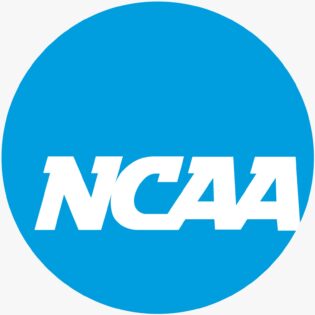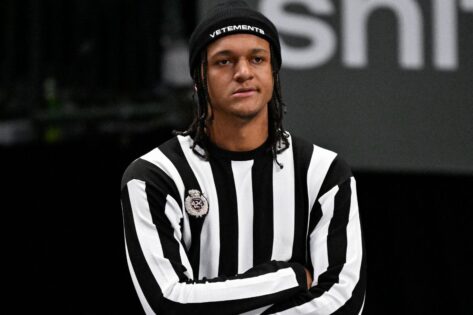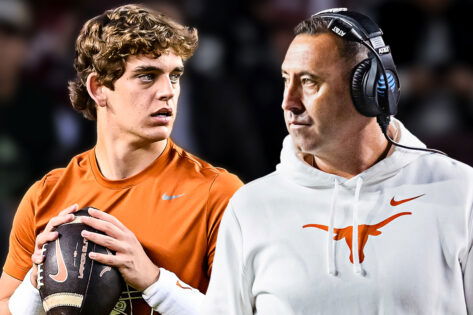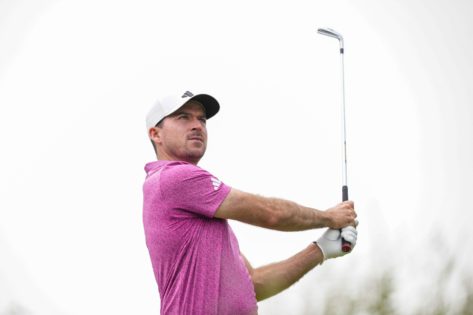It wasn’t just another political headline on Thursday. It was a collision between Washington power and college football’s ever evolving ground. President Donald Trump signed an executive order aimed at pumping the brakes on what he called the professionalization of college sports. “It is common sense that college sports are not, and should not be, professional sports, and my administration will take action accordingly,” the order stated. And so, in the middle of summer media days as coaches and programs are gearing up for fall, the gridiron got a curveball.
Donald Trump’s executive order put forth a 30-day plan directing his Cabinet to safeguard the educational integrity of college sports, explicitly banning third-party pay-for-play deals and conditioning federal funding on athletic compliance. That means more shady NIL bag drops, at least, not without a fight. The order praises fair-market endorsements but comes down hard on anything resembling a salary disguised in a brand deal. That alone would’ve stirred the pot, but what came next made it clear that this wasn’t going unanswered.
The Power 5, in a rare show of unity, the Autonomy 5 conferences dropped a joint statement hours after the executive order went public. On July 24, Branden Marcello dropped a screenshot of the “statement from the Autonomy 5 conferences on President Trump’s executive order” on college sports on X. “We appreciate President Trump’s commitment to protecting the future of college athletics,” the statement began. “This executive order builds on the momentum created by the bipartisan SCORE Act, which will provide long-term stability to college sports and expand resources to support the overall well-being of student-athletes.” And then it pivoted to reinforce what’s really on their mind which is federal legislation.
Statement from the Autonomy 5 conferences on President Trump’s executive order. pic.twitter.com/vnYcrARUgL
— Brandon Marcello (@bmarcello) July 24, 2025
“With the House settlement now in effect, student-athletes have more financial and academic support than ever before,” the statement continued. “Now, attention turns to preserving these monumental gains by passing a federal law with national standards for student-athletes’ NIL rights. We hope Congress sends federal legislation to President Trump’s desk as soon as possible.” So while Donald Trump may have issued the order, the Power 5 essentially replied that they already have a playbook in motion.
Behind closed doors, there’s more at stake. The House v. NCAA settlement is active, granting up to $20.5 million annually in athlete payouts essentially salaries dressed up as endorsements. That, combined with the bipartisan SCORE Act chugging through Congress, signals that the Power 5 wants federal help but on their terms. Still, not everyone’s buying what Donald Trump is selling or what the NCAA is lobbying for.
What people are saying about the Trump’s executive order
Steve Berman, lead attorney in the House v. NCAA case, fired off a shot saying,“Plain and simple, college athletes don’t need Trump’s help, and he shouldn’t be aiding the NCAA at the expense of athletes. As a result of our case, college athletes are now free to make their own deals. For Trump to want to put his foot on their deal-making abilities is unwarranted and flouts his own philosophy on the supposed ‘art of the deal.’”
Meanwhile, Purdue coach Barry Odom, speaking at Big Ten Media Days, offered a shrug more than a rebuttal. “We’ve gotten to the point where government is involved. Obviously, there’s belief it needs to be involved… the game’s been around 100 years and will be around 100 more.” But here’s where things get tricky and political. NCAA president Charlie Baker welcomed the attention but reiterated the need for one thing Donald Trump can’t give. Antitrust protection. That’ll require Congress, and the bill inching toward a House vote still faces an uphill climb in the Senate.
Trump’s executive order also mandates that athletic departments with over $125 million in revenue must increase non-revenue sport scholarships. Those between $50–125 million have no cutting allowed. Women’s sports advocates and Olympic-development programs will love it. But for ADs staring down bloated budgets, not so much. In the end, it’s still a game of fourth-and-long. Donald Trump just called a play, but college sports isn’t handing him the b—.
The post Power 5 Conferences Respond to Trump’s Executive Order With Unified Statement on NIL and Athlete Rights appeared first on EssentiallySports.



